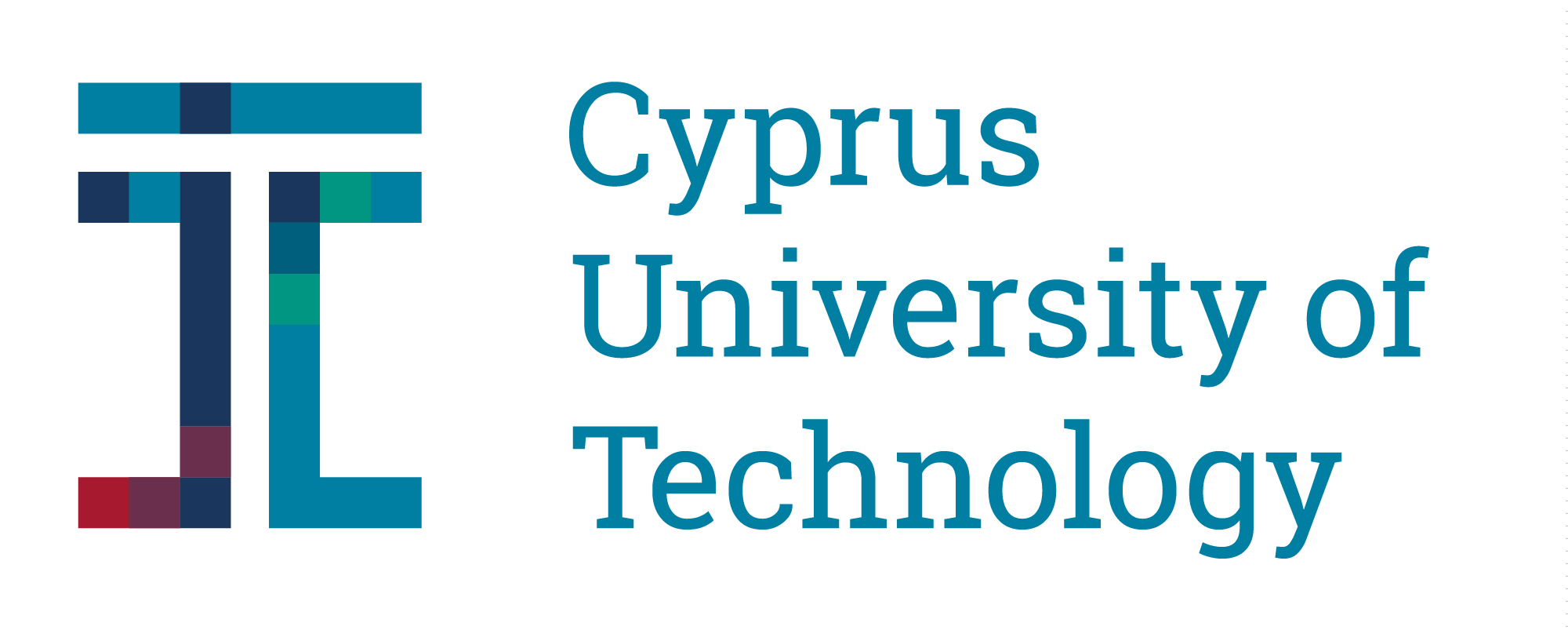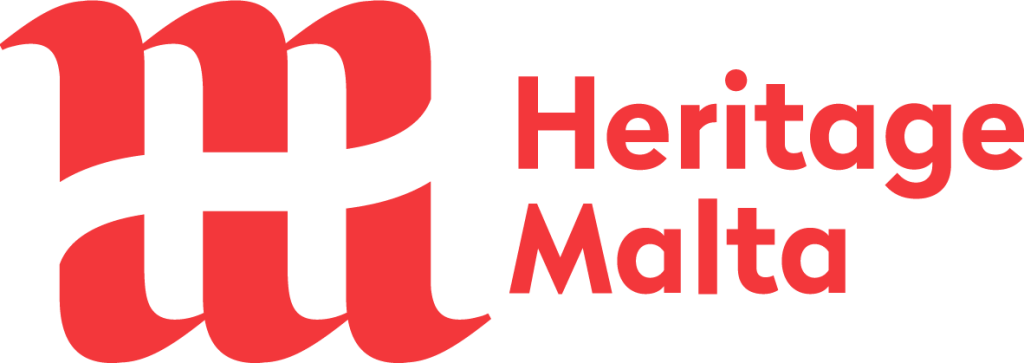The HERITALISE project continues to establish itself as a key reference point in the field of cultural heritage digitisation, data The HERITALISE project continues to establish itself as a key reference point in the field of cultural heritage digitisation, data integration, and artificial intelligence–enabled conservation. This year, the consortium made a remarkable dual appearance at two of the world’s most prestigious events in heritage science and technology: the 30th CIPA International Symposium “Heritage Conservation from Bits” held in Seoul, Republic of Korea (August 25-29, 2025), and Digital Heritage 2025 hosted in Siena, Italy (September 8-13, 2025).
At both conferences, HERITALISE partners presented research papers that embody the project’s vision to develop a holistic, interoperable digital ecosystem for cultural heritage, aligned with the European Collaborative Cloud for Cultural Heritage (ECCCH). The publications represent another great milestone, bringing together technological innovation, scientific rigour, and cross-disciplinary collaboration across Europe.
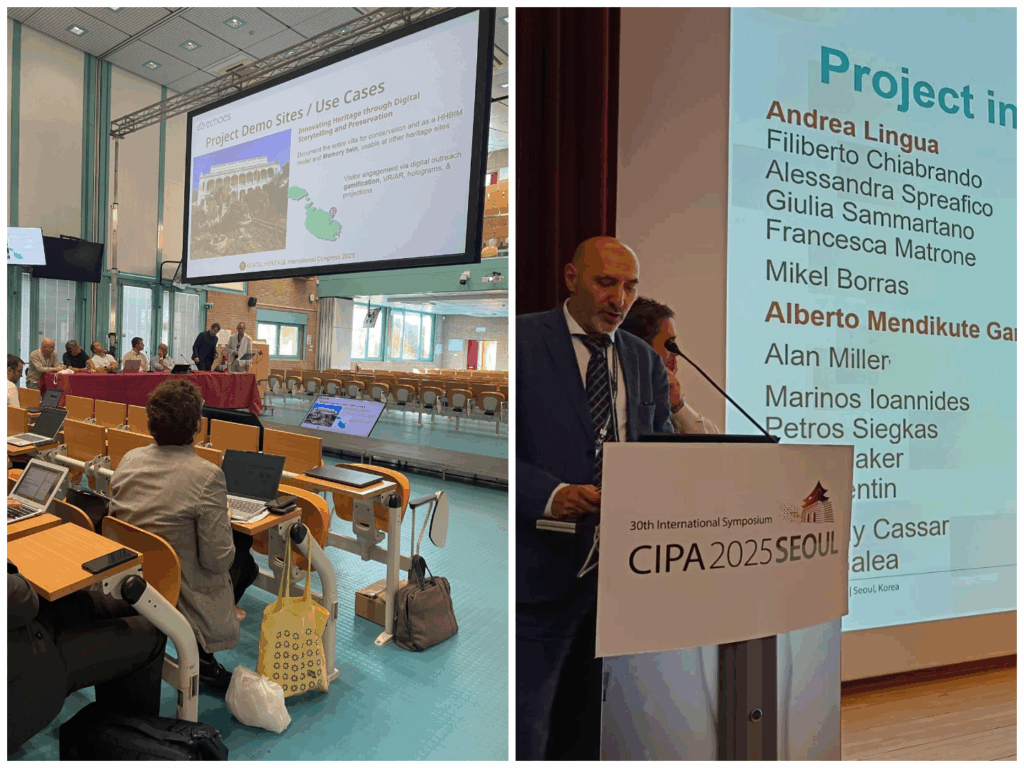
CIPA 2025 in Seoul: Heritage Conservation from Bits
At the 30th CIPA Symposium, hosted under the theme “From Digital Documentation to Data-driven Heritage Conservation,” HERITALISE presented the paper “HERITALISE. Project Insights and Initial Developments”, authored by Filiberto Chiabrando, Andrea Lingua, Alessandra Spreafico, Giulia Sammartano, Francesca Matrone (Politecnico di Torino), Mikel Borras (IDP), Alberto Mendikute (TEKNIKER), Alan Miller (University of St Andrews), Marinos Ioannides and Petros Siegkas (Cyprus University of Technology), Drew Baker and Mia Trentin (University of St Andrews), Anthony Cassar and Julia Galea (Heritage Malta).
This paper outlines the foundational structure, objectives, and early outcomes of the project, positioning HERITALISE within the European ecosystem of digital heritage research. The authors introduced a comprehensive framework that merges tangible and intangible heritage documentation, bridging physical artefacts, environmental data, and cultural narratives into a single interoperable model.
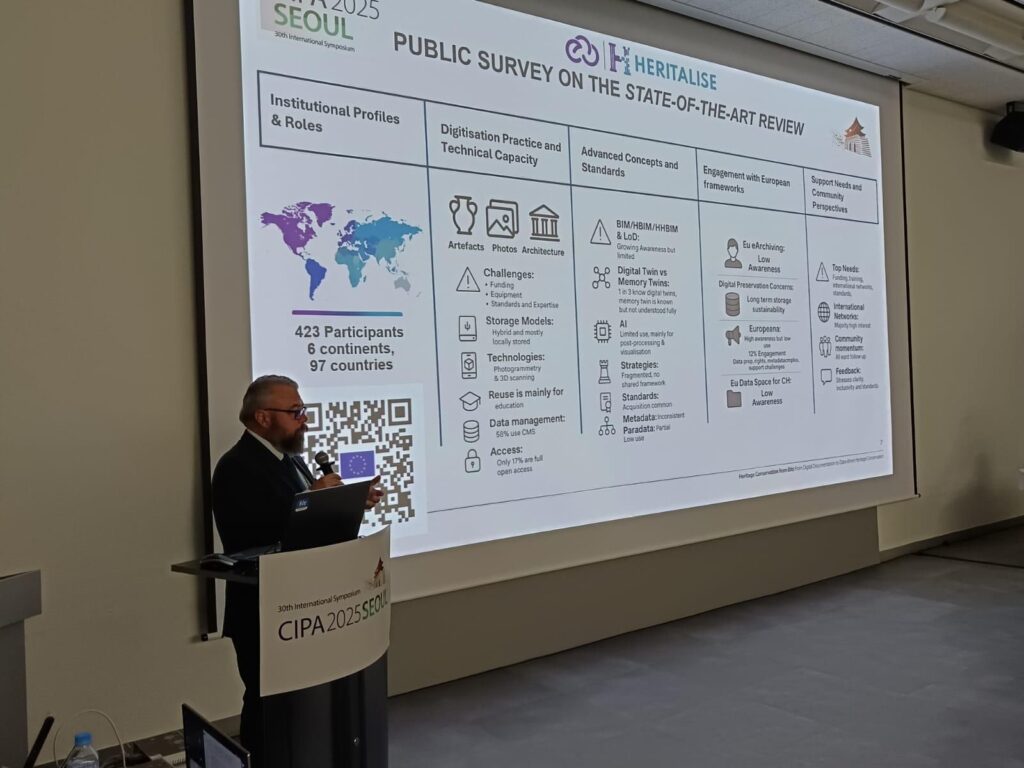
One of HERITALISE’s key innovations presented at CIPA 2025 is the concept of the “Memory Twin.” Extending the idea of the “Digital Twin,” a Memory Twin integrates visible, non-visible, and contextual cultural data, including oral histories, material analyses, and community knowledge. This approach aims to transform the way cultural heritage is understood: treating objects not only as physical entities but also as carriers of collective memory, identity, and tradition.
The paper also addressed a long-standing challenge in cultural heritage documentation: the standardisation of quality metrics for 3D data. Building upon the European Commission’s VIGIE Study on Quality in 3D Digitisation, HERITALISE proposes new protocols for accuracy assessment, drawing on industrial metrology standards such as VDI/VDE 2634 and ISO 10360-13:2021. By combining traditional heritage survey practices with these precision frameworks, the project seeks to elevate reliability and reproducibility across heritage digitisation workflows.
The presentation in Seoul received strong interest from the scientific community for its integrated methodology and its potential to inform future European standards for cultural heritage data quality, interoperability, and AI integration.
Digital Heritage 2025 in Siena: Integrated Approaches in Action
At Digital Heritage 2025, held in Siena, Italy, HERITALISE partners presented two posters: “Integrated Survey for Heritage Digitisation – The Case Study of Venaria Reale” by Alessio Martino, Beatrice Tanduo, Edward Borgogno, and Filiberto Chiabrando (Politecnico di Torino), and “Advanced Digitisation and AI-Powered Data Processing for Cultural Heritage: The HERITALISE Project” by Francesca Matrone, Filiberto Chiabrando, and Andrea Lingua (Politecnico di Torino).
These contributions captured HERITALISE’s comprehensive approach to cultural heritage documentation, merging advanced survey methodologies with artificial intelligence and data integration techniques. The research showcased how multi-sensor 3D data acquisition—combining terrestrial laser scanning, UAV photogrammetry, and mobile mapping—can generate high-fidelity digital twins of complex sites such as the Reggia di Venaria Reale.
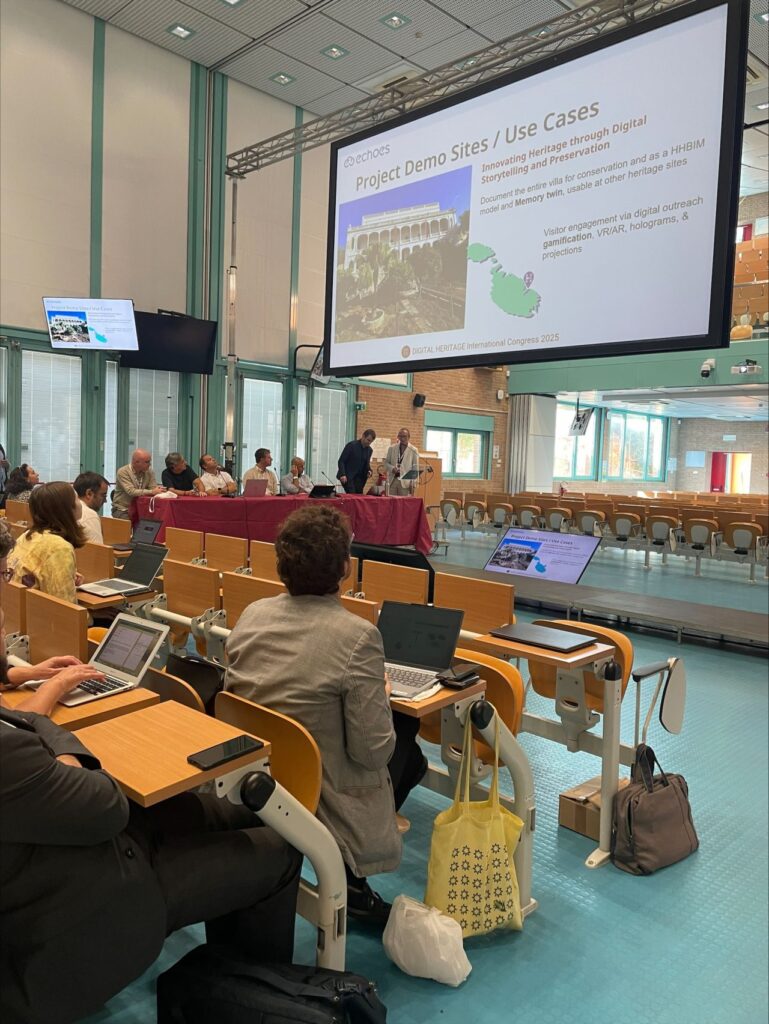
Beyond data capture, the studies highlighted the project’s progress in developing AI-assisted post-processing workflows capable of automating noise reduction, reconstruction, and semantic enrichment of 3D models. This integration of AI-driven analytics and interoperable knowledge graphs marks a significant step toward the HERITALISE vision of transforming fragmented datasets into a cohesive, reusable, and interpretable digital ecosystem.
Together, these advancements reaffirm HERITALISE’s leadership in shaping a future where cultural heritage is documented, preserved, and shared through innovation, collaboration, and open-access technologies.
A Shared Vision for the Future of Heritage
The participation of HERITALISE in both CIPA Seoul 2025 and Digital Heritage 2025 underscores the project’s leading role in shaping the digital future of cultural heritage. Through its research outputs, the consortium contributes directly to Europe’s broader strategy for a Common European Data Space for Cultural Heritage, promoting open access, data quality, and interoperability.
HERITALISE aims to be more than a technological project: it represents a collective European effort to redefine how we understand, preserve, and experience heritage in the digital age. The project’s integration of geomatics, AI, data ethics, and storytelling creates a unique bridge between cultural institutions, researchers, and the public.

